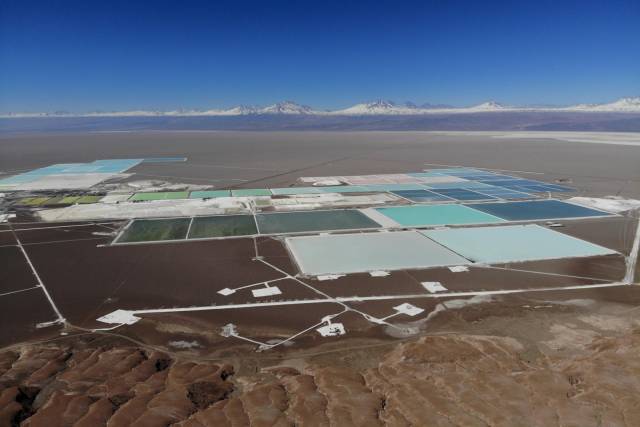The recent investigation ‘Devices draining the desert’ by Danwatch found that lithium extraction for the batteries in our computers, telephones and electric cars is using many of the scarce water resources that let indigenous peoples and animals inhabit the world’s driest desert – the Atacama.
Underneath the Atacama and adjoining salt flats, Chile is estimated to possess more than half of the world’s reserves of lithium - the light metal that is an essential ingredient in the batteries of our telephones and computers as well as the electric cars that are deemed essential for a green energy transition. With the soaring EV industry, the global lithium demand is expected to more than triple by 2025 and so a “white gold rush” is upon Chile and its neighbouring countries.
But extracting Atacama’s lithium entails pumping up massive amounts of the scarce water resources that have allowed indigenous peoples and animals to survive for thousands of years in this harsh environment. And according to researchers, it already causes lasting harm to the fragile ecosystem of the world’s driest place.
In the Atacama and elsewhere in Chile, indigenous communities are now protesting current and future lithium extraction plans. Many communities claim they have never been consulted prior to the extraction projects, though Chilean authorities are obliged to do so according to international conventions ratified by the Chilean state. Danwatch can document that companies such as Samsung, Panasonic, Apple, Tesla and BMW get batteries from companies that use Chilean lithium.
Read more about the impacts on the indigenous communities here.
Read more about the impact on biodiversity here.
Read more about lithium supply-chains and companies involved here.
The Danwatch investigation was supported by the EU-funded project Make ICT Fair and published in collaboration with Setem.





